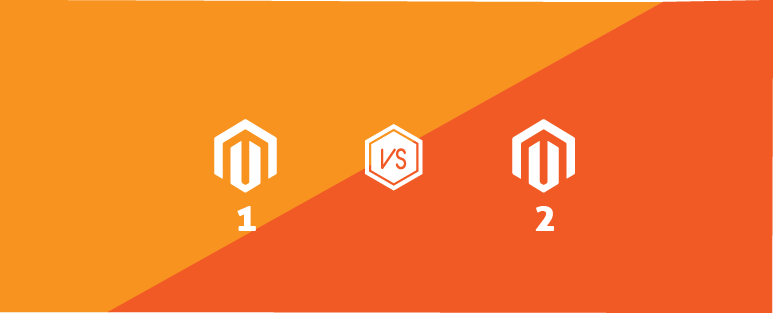5 Reasons Why Magento 2 is Better Than Magento 1
Here you will find 5 Reasons Why Magento 2 is Better Than Magento 1. Don't wait for Magento 1 to stop support. Migrate now!

There are many details to consider when choosing a Magento 2 hosting option for your eCommerce business. Before beginning the process, you should have a comprehensive understanding of what hosting is, the hosting company’s responsibilities, what you as the merchant are responsible for, and how to choose the best Magento 2 hosting company for your eCommerce store.

Image via Flickr by Tim Reckmann | a59.de
It is important to understand what Magento 2 web hosting is. A hosting company such as IronPlane stores your eCommerce business on one of its servers, allowing potential customers to access your website via the internet.
You have several Magento 2 web hosting options to consider:
This option is available for eCommerce companies with the knowledge and time to self-manage. If you decide to self-manage your hosting, you assume responsibility for maintaining the server yourself, including:
With managed hosting, a hosting company is responsible for maintaining your Magento 2 eCommerce website’s server. eCommerce sites often have unique hosting needs. Magento Solution Partners such as IronPlane have demonstrated the ability to meet Magento eCommerce store hosting requirements, including:
You may also want to consider Magento Commerce services:
Magento Commerce offers two pricing tiers. Both offer a cloud hosting option, called the Magento Commerce Cloud, to provide support for customized Magento eCommerce stores. Magento Cloud Hosting includes:
When you select Magento Commerce, Magento hosts your eCommerce website along with any required infrastructure and optimization.
Hosting providers, even those specializing in Magento 2 web hosting, do not push Magento patches, upgrades, or updates for several reasons. The primary reason is that the hosting provider is not being paid to complete these tasks. If you’re paying for managed hosting, you are paying to have your eCommerce site hosted on that company’s server and for it to handle any server-specific issues. You are not paying the company to address problems with the website itself.
Because Magento is an open-source platform, users can decide if they are going to apply available patches, make upgrades, or install additional elements to their eCommerce store’s core code. Some companies choose to run their Magento eCommerce stores using Magento 1.4, never applying a security patch and implementing numerous core overrides.
Each Magento eCommerce site is customized to meet the unique needs of that site. This can include operating on various versions, applying a variety of security patches, and utilizing numerous extensions, some of which might be outdated.
Due to Magento’s open-source nature, it cannot provide blanket updates to users. Only apply updates, patches, and upgrades after carefully considering the effect they may have on your customized site. Pushing updates automatically can result in overriding or breaking some features on your site.
A Certified Magento Development agency can help meet your Magento eCommerce store’s unique needs before implementing website changes. IronPlane tests any suggested changes in a safe development environment, identifying how those changes might affect your eCommerce store and ensuring your site is working correctly before installing them onto your live website.
Consider the following factors when selecting a hosting provider for your Magento eCommerce site.
First, identify your eCommerce store’s specific performance requirements. What level of traffic does your store receive? How many products are in your inventory? How many orders can you process at one time? Once you can answer these questions, the following three metrics can guide you in selecting a hosting provider:
Next, decide whether you will use a cloud, shared, or dedicated server:
Third, you must identify the amount of support you will require from a hosting provider, decide whether you need the services of Magento Commerce or managed hosting, or determine if you can handle managing hosting responsibilities internally.
Finally, you must review the various hosting providers’ available features, including price, support hours, backups, server security, scalability, SSL encryption, PCI compliance, and firewalls.
Selecting the best hosting provider for your Magento eCommerce store is critical to the overall success of your business, as hosting directly affects your online store’s speed and performance. In doing so, you must understand what hosting is, what services hosting providers provide, and make sure you seek out the assistance of a certified Magento Development services agency such as IronPlane. We’ll help you apply upgrades, patches, and updates in a secure and safe way that won’t adversely affect your store’s operation.
IronPlane provides a hosting architecture built for your needs and a hybrid environment of cloud-based hosting with application servers, database, search, and multi-tenant and dedicated cache. Features include:
Contact the Magento experts at IronPlane today to get started on building your eCommerce business.
Magento (now Adobe Commerce) is a robust and resource-intensive platform that requires a powerful hosting environment to ensure optimal performance. The recommended hosting requirements include a Linux-based operating system, support for PHP 7.4 or later, MySQL 8.0 or MariaDB 10.4 for the database, and Elasticsearch 7.6+ for search functionality. Additionally, a hosting provider must offer sufficient server resources, such as scalable CPU and RAM, to handle high traffic volumes and complex ecommerce operations. Businesses are also advised to use a Content Delivery Network (CDN) and SSL certificates for faster load times and secure transactions.
Magento supports multiple hosting options, giving businesses the flexibility to choose the best fit for their needs. These options include on-premise hosting, where businesses manage their own servers, and cloud hosting, which provides scalability and reduced maintenance. Adobe Commerce also offers a fully managed cloud solution—Adobe Commerce on Cloud—specifically optimized for Magento, including built-in tools for performance monitoring, automated scaling, and enhanced security. Businesses can also choose third-party hosting providers specializing in Magento, such as AWS, Nexcess, or Cloudways, for customizable hosting environments.
Selecting the right hosting provider is critical for ensuring the speed, security, and reliability of your Magento store. As an ecommerce platform, Magento processes large amounts of data, requires robust server resources, and must handle traffic spikes during high-demand periods. A reliable hosting provider ensures faster page load times, which directly impacts customer experience and SEO rankings. Additionally, a strong hosting solution includes essential features like automated backups, DDoS protection, PCI compliance for secure transactions, and 24/7 support to address any issues promptly. Without proper hosting, your Magento store may suffer from slow performance, downtime, and security vulnerabilities.

Here you will find 5 Reasons Why Magento 2 is Better Than Magento 1. Don't wait for Magento 1 to stop support. Migrate now!

Get the pros and cons for Magento vs Shopify. Why we think Magento is the right platform for your eCommerce business.
 Read More
Read More